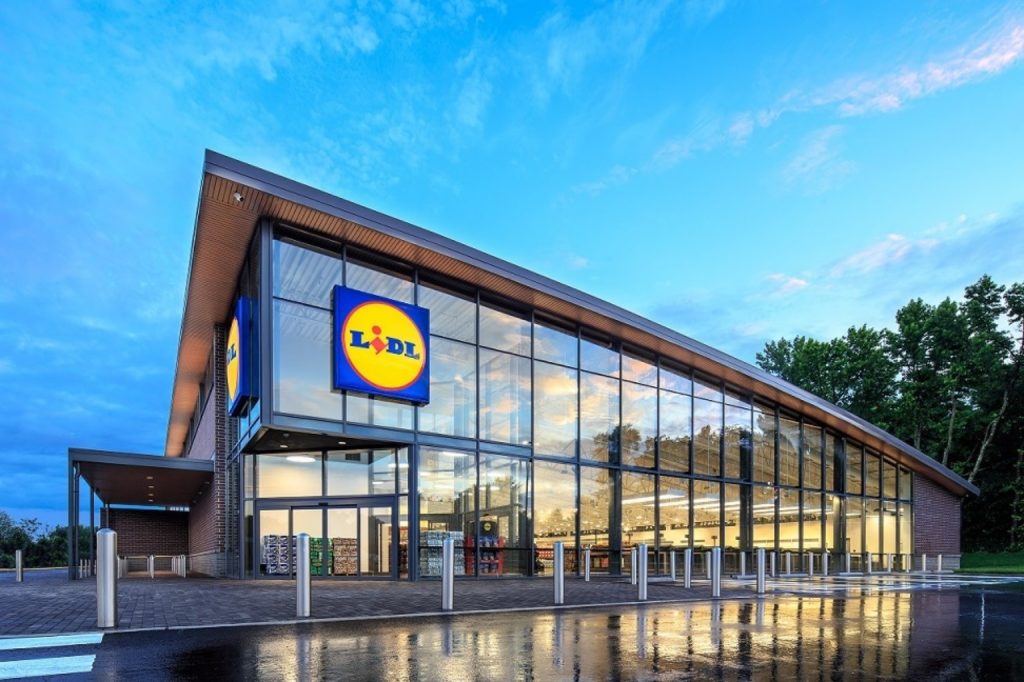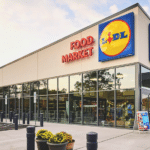Is your supermarket too expensive? Walmart too expansive? Is ALDI’s selection too limited, and Trader Joe’s too trendy?
Then get ready for Lidl.
The German-based discount grocer (pronounced “leedle”) has announced that its long-planned expansion into the U.S. is now just months away. Ahead of schedule, Lidl’s first 20 stores will open in Virginia, North Carolina and South Carolina this summer. By the end of its first year, Lidl plans to have at least 100 stores up and down the East Coast from Georgia to Pennsylvania. And after that – it could be everywhere.
“We are thrilled to introduce residents across the East Coast to a unique shopping experience,” Lidl U.S. CEO Brendan Proctor said in a statement, officially announcing the retailer’s U.S. debut.
So what’s the big deal?
While the comparison isn’t perfect, Lidl is most often compared to ALDI. They both originated in Germany, both operate smaller-format stores, both offer a limited selection of products that are often displayed in their shipping boxes, both require you to bring your own bags and bag your own groceries, and both sell everything at much lower prices than your typical grocery store.
But Lidl is aiming a bit higher. “Unlike ALDI, Lidl will be a hybrid similar to Trader Joe’s or Harris Teeter but closer to a Trader Joe’s,” a recent company presentation read. “We will sell high-end brands, quality not quantity, best products only.”
Compared to the 10,000 stores it already operates in 27 European countries, Lidl’s U.S. stores will be larger and offer more variety. They’ll be about twice the size of most ALDI and Trader Joe’s stores, but still far smaller than a traditional supermarket. Lidl will offer many more brand-name products than ALDI and Trader Joe’s, plus plenty of fresh produce, in-store bakeries and even a rotating selection of non-grocery items like tools and clothes.
The idea is to provide a full selection of grocery products, but one that’s a bit more manageable than the dizzying array of choices in larger supermarkets. “Who honestly needs 50 types of ketchup?” Proctor pondered to the Washington Post. “We can streamline that.”
But what about coupons, you might wonder, as you read a coupon-focused website? We don’t know just yet. Lidl representatives did not respond to a request for comment about its planned coupon policy. What we do know is that Lidl doesn’t accept manufacturer’s coupons in Europe, though couponing is far less common there than it is here. ALDI and Trader Joe’s shoppers might be accustomed to shopping without coupons, since neither store carries many brand-name products anyway. But will American Lidl shoppers be willing to buy brand-name products at the shelf price, when they might be able to get them on sale with a coupon for less at a supermarket?
Even Walmart, with its “everyday low prices”, accepts coupons, after all.
Either way, Lidl is still looking to make a splash – and many retail analysts expect it to do just that, as American grocers and shoppers begin to shift from the megastore mindset to smaller-format, more manageable stores. Whole Foods, for example, is trying a scaled-down version of its flagship stores, while ALDI is trying to meet it in the middle by scaling up – Lidl’s announcement this week came just days after ALDI unveiled plans to remodel and enlarge its stores across the country.
They may be trying to adapt to what Lidl has already apparently figured out. “Customers are being forced to choose between quality, price and convenience,” Proctor said. “And this is a compromise they shouldn’t have to make.”
We’ll soon find out whether Lidl gets it right – and gets a good share of your grocery business in the process.
Image source: Lidl















Look forward to your happy visits